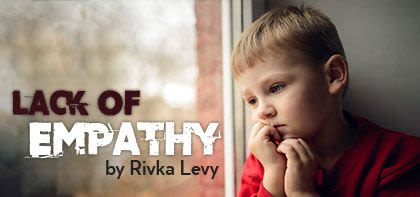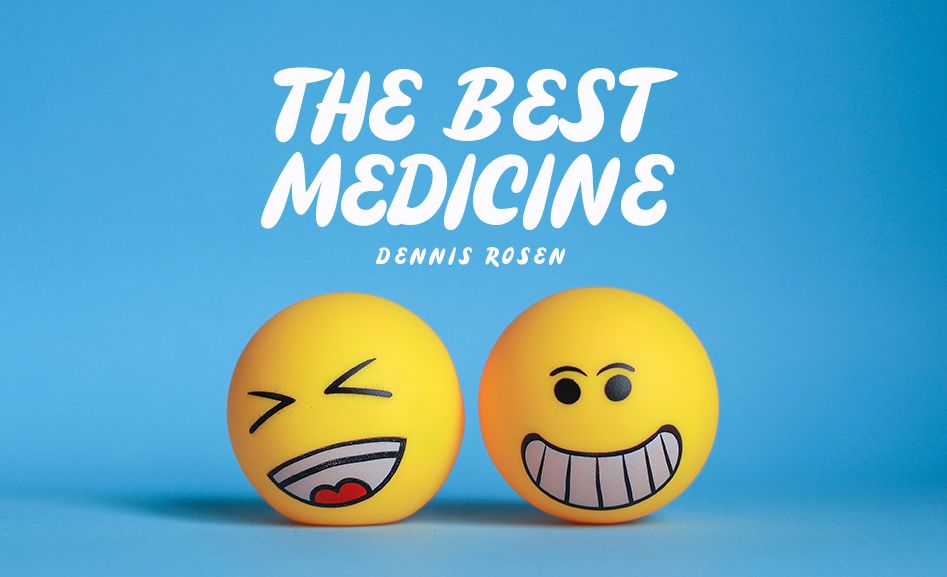
A Lack of Empathy
Verbal cruelty and a lack of empathy are all too common in our culture, but their effects are serious and long lasting...

In the last article Healthy Compassion, I discussed the theory of what is empathy and healthy compassion, and how important it is in our lives. Now, let’s discuss a few practical examples:
The Nagging Wife
Mr. Jones has a demanding job, and a rush hour commute of between an hour and an hour and a half, depending on the traffic. He comes home exhausted. Mrs. Jones has no idea how tiring her husband’s day is, since she hasn’t yet learned to put herself into her husband’s shoes, and truly empathize with him. As soon as he steps in through the door, she assails him with complaints about her tough day, demands for more help with the chores, and asks him to immediately go upstairs and replace the light bulb that burnt out in the utility room.
Once Mrs. Jones switches into ‘compassionate mode,’ she’ll let her husband unwind a little, and decompress from his day, and maybe even ask him how he’s doing, before asking him to take out the garbage.
The Demanding Parent
When Rachel Green’s eight-year-old daughter forgot to do her math homework and got a note home from the teacher, her mother hit the roof and started accusing her daughter of all sorts of horrible things. Because Rachel is struggling to empathize with her daughter, she forgot that even adults sometimes forget to do things – particularly things they don’t really want to do.
As Rachel starts working on building her sense of empathy, it’ll get much easier for her to remember that she also sometimes makes mistakes (like the time she forgot to make the meal for the neighbor like she said she was going to do), which will make it much easier for her to treat her daughter more compassionately.
The Unsympathetic Friend
Esther is one of life’s ‘winners’: she lives in the nicest house, on the best street. She makes the best food, she dresses expensively, she drives the fanciest car, and her husband makes the most money of anyone in the neighborhood. Esther finds it impossible to empathize when her friends are experiencing financial difficulties. As a result, whenever the conversation turns to a difficult money issue her friend is experiencing, Esther either tries to divert the conversation using a number of means, which are neither compassionate nor empathetic.
Once Esther realizes a more compassionate response is required, she’ll give her friends space to share their true feelings, and just listen and feel their pain. She won’t blame them for their problems, and she won’t feel like she has to ‘fix’ everyone else’s life.
Don’t panic if any of these sound like you! Even the most spiritually healthy person in the world occasionally makes mistakes, and sometimes responds to others with a lack of empathy. Remember that a lack of empathy is the normal response in today’s world – and it’s a key reason why so many of us feel so anxious and ‘off kilter’ so much of the time.
As a general rule, when people empathize with you, you feel loved, cherished, supported, cared for and safe. When people start blaming you, or criticizing you for your problems, you generally feel defensive, angry, ‘bad,’ worthless, and very lonely. The more you tune into your feelings, the more you’ll start to see who’s really treating you compassionately, and who isn’t.
The Modern Epidemic of Verbal Cruelty
Although most people generally accept that hitting people or torturing kittens is bad, many people are still very resistant to the idea that using words to hurt people is cruel, or even wrong.
However, the truth is that we remember, and suffer from, an unpleasant verbal encounter for much longer than we would a minor physical hardship or injury. Yes, it hurt a lot when I nearly cut the top of my finger off when I was making a salad and I had to get it stitched back together, but once it healed, I completely forgot all about it.
By contrast, every time I think of that horrible teacher who made me stand on my chair in front of the whole class while they berated me for being late, I still cringe. Mentally, I’m still suffering from that teacher’s cruel speech, and long-term, it’s affecting me far more than my damaged finger.
The plain fact is that verbal cruelty can seriously damage your psyche and soul. Unfortunately, it’s such a ‘normal’ occurrence that we generally don’t even register what’s going on, or how we’re physiologically reacting to being mocked, criticized or blamed. The prevalence of cruel speech and behavior in today’s world is a key reason why so many people feel so anxious so much of the time, particularly in relation to their social standing and interactions with other people.
Some examples of verbal cruelty are:
– Slurs on your character or reputation
– Offensive, disrespectful speech
– Destructive, demoralizing statements
– Parodying someone
– Making negative statements in a subtle ‘passive-aggressive’ way
– Using facial expressions and gestures to put someone else down
The basic rule of thumb is this:
Compassionate responses make people feel loved, cared for and great;
cruel responses make people feel defensive, lonely, anxious and angry.












Tell us what you think!
Thank you for your comment!
It will be published after approval by the Editor.